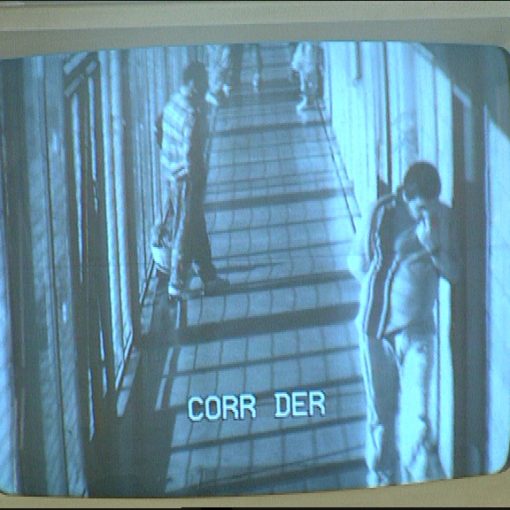The first word that most people associate with a book is “knowledge”, “know” or “culture.” But in my case the first associative word that comes up is “therapy”. This is so because I am a specialist in Bibliotherapy. I have recently received from the University of Flores a postdoctoral diploma in psychology with orientation in revision research methodology. I would like to thank the Faculty of Psychology and Social Sciences for their teaching vocation. I would especially like to thank Dr. Analía Losada, who as Vice Dean has provided an excellent job as a teacher.

At the same time I would like to dedicate a very deep gratitude to the group of colleagues in the post-doctorate, who have been an amazing stimulus in the learning of Psychology, who have transmitted to me the value of cooperativism, the exchange of ideas and perseverance. Of course I dedicate this new achievement in my scientific career to them.
Then I would like to share with the reader a brief of the intellectual work carried out.

First of all, I am a Post-Doctorate in Psychology with Orientation in Revision Research Methodology, Doctor in Social Psychology, degreed in Librarianship and Documentation, and Specialist in bibliotherapy.
Secondly, to mention that since my earliest childhood I found in the book a balm with which to improve my own coping styles, the love I felt (and that I feel) for enjoying a good reading, has been the experiential basis that it allowed from the beginning to associate the book with its therapeutic aspect
That which can strengthen the psychic mechanisms to face the difficulties of life, and that all of us put into operation from our human constitution, (and some experts call resilience capacity), can be stimulated with a recommended reading, especially directed, according to the circumstances and the people or the contexts characterized by states of deprivation or suffering
So reading reaches a very deep social, scientific, humanistic dimension, which allows the Librarianship and the Psychology work as a strategic alliance capable of transmitting the value of the book in its reparative aspect of meaning, identity, and opportunity.
Thirdly, and before specifying some articles written in relation to bibliotherapy, I would like to mention the influence in my life of Victor Frankl, who discovered that the last thing that can be taken from a man is his freedom of choice, for example, freedom of giving a last and very little piece of bread to someone else instead of eating it to survive, explains the existence of the human dimension, which cannot be reduced by any kind of determinism, something very frequent in post-Darwinian psychological theories
The spiritual dimension of the human being requires the study of a psychology and psychotherapy of meaning, because there are different values for each person, which can operate psychologically as a support to cope with life in a sustainable way.
In other words, having a life purpose is a source of resilience
Finally, I would like to add that in my research work I have found that neurosciences support the perspectives that encourage the cultivation of a purpose in life, others researches maintains that this purpose can affect the quality and prolongation of lifetime
Emotions such as gratitude, hope, compassion, reinforce the meaning of life and can promote resilience. All emotions that can be found in a book.
In this way, Bibliotherapy presents themes that require the knowledge of different experts in different disciplines.
In the case of the subject that I have investigated, I demonstrated through scientific consensus enough evidence to support that scientific validity of Bibliotherapy to treat noogenic neurosis in vulnerable populations
I have found in my research, theoretical bases that allow to sustain that around reading there are biopsychological processes such as, for example, the development of the intellect, which justify from other perspectives the importance of the book as a therapeutic resource.
In addition, with the help of neurosciences, I was able to investigate more about the mental process that enriches the readaing experience. Neuroscience precisely realizes that there is a fusion of the senses that is promoted in the reader’s brain.
In the aforementioned article, Systematic review of articles on bibliotherapy and the meaning of life, I refer, among other questions, to how the reading habit leads to facilitating and stimulating the neurocognitive network of the human brain.
Text comprehension tools are involved in the neural network of the reader’s brain, which allow a person to have a greater capacity for appreciation for each experience lived. Which facilitates the construction of the meaning of his life, which in all cases, strengthens the psychic mechanisms of resilience
This is essential to understand its importance and application in total institutions, characterized by the presence of a type of existential depression or void of meaning, which complicates the psychosocial exchange, weakens the state of health and threatens social adaptation in these vulnerable populations.
Therefore, the article explains the social role of the biblio therapist in these total institutions and claims his function as a recuperator of the psychic mechanisms that work to heal aspects related to the meaning of life. Through catharsis, liberation, relief, the development of imagination and creativity, reading from bibliotherapy, can be applied in patients with addictions, elderly groups, prisoners with long sentences, etc
The article called systematic review of articles on bibliotherapy and the meaning of life thus presents the sufficient scientific framework to validate this resource in psychosocial and community interventions.
On the other hand, those who like to know more comprehensive philosophical aspects and the history of Bibliotherapy can consult the interview carried out by Dr. Analía Losada for the journal of Psychology of the Faculty of Psychology of the University of La Plata.
In this interview I further develop the historical evolution of the library concept until modernity, I mention its application in different socio-community settings, within a process of gradual rapprochement between library science and psychology.
I also share the three theoretical pillars of Bibliotherapy based on logotherapy : freedom of will, which involves the ability to be free from instinctive and socio-cultural determination, the will to make sense, which entails self transcendence and meaning life that is synthesized in personal fulfillment of positive and unique meanings
In the aforementioned interview, it can be seen how books particularly stimulate the transformation of the reader’s personality in a psychological process of appropriation of stories, which is essential to understand the psychology of identification towards the development of protagonism, catharsis and introspection.
The human is a dimension singularly endowed with meaning, and Bibliotherapy must be defined according to that conceptual framework, that is, without missing that singular dimension, it is no coincidence that one of the most pressing problems of humanity in the 21st century is depression that without a doubt brings with it nonsense as a constituent pathological element.
As I develop in the interview, a benefit of reading is to become that antidote to the lack of meaning that lurks in so many orders of our contemporary societies.
It is precisely from this perspective that in the interview I explain how Bibliotherapy is related to existential frustration.
Above all we know that as an instrument of psychosocial intervention, Bibliotherapy is located within the so-called non-invasive treatments.
This leads to my theory that it is beneficial to apply Bibliotherapy as a therapeutic resource for vulnerable populations.
Reading in this context activates interest, awakens sense, provides motivation, promotes empathy, among other qualities.
This has been investigated from different disciplines such as social psychology, anthropology, medicine, sociology, to name those that have the greatest relevance in the construction of scientific consensus.
In fact, I have written a different article especially dedicated to the construction of scientific consensus that can provide a much more enriching scenario of the interdisciplinary, transdisciplinary and intradisciplinary perspective that characterizes the settings of high academic studies today.
It is a very interesting article in which we can learn the importance of the role of specialists in the different areas of study, the rigorous process of categorizing a text understood as scientific, and the essential elements to develop articles for science. In this sense, meta-analytical studies become increasingly important for a community of researchers, since they facilitate the discrimination of relevant and sensitive information that can facilitate decision-making.
These protocols have a modern history and work very well in these times where information abounds, but is often not supported by valid foundations from the point of view of technical rationality.
I have written several articles on related topics.
I would like to invite the reader who wishes to delve into this topic to read another article, this time on the prism method that I elaborate from Bibliotherapy, where I explain what exactly a post-doctorate is.
I also answer specific questions such as what is a review article? What objectives does it pursue? What role do they play in the development of science and cultural life?
And other very interesting topics such as the double blind or peer system is built, or some teachings given to a selected group of research doctors in Psychology.
Finally, would be recommended my recent publication entitled noetic implications of reading writed it with Dra. Suzaneide Medrado Oliveira.
Literature as a space in which the reader and the text configure a particularly unique dynamic, traversed by the universe of meaning in a subjective way. It should not be forgotten that all reading represents a fundamental aspect in the formation of the human being which acquires its most concrete character in the interaction with others mediated by the use of language.
The noetic concerns the reflective, it is associated with the intellection, even with the intelligible intuition that implies conceptual perceiving. For Frankl it was always related to a uniquely human dimension, which involves reflective thought, contemplation, and manifests itself with self-awareness
For example, there is the noetic capacity for self-distancing, which is an essential element for the reading process, but similarly applies to all kinds of existential analysis that people carry out when faced with problematic life situations. This ability is established and stimulated by reading
Another vital aspect linked to the noetic explains that transmission of experiences that occurs when there is a genuine contact with the work of an author through the reading of his texts. This contribution is essential considering that all human freedom is exercised by the act of deciding. In each election, the psychic resources are operating, such as learning from the habit of reading
Again I express my gratitude to those wonderful people with whom I learned a lot, not only about psychology, science and revision studies, but about the importance of creating teams where specialists from different disciplines work on the technical solution of human problems.
Once again, many thanks to the University of Flores. To Dr. Analía losada. And to the entire team of doctors and post-doc colleagues who made this learning process possible.
With affection Antonio Román.
Post doctorate in Psychology with orientation in Review Research Methodology






